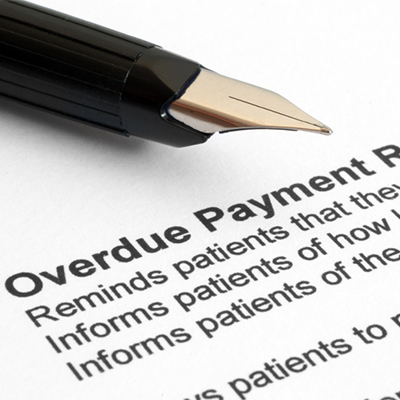
The Parliamentary Ombudsman is clearly of the opinion that many dental professionals could do much better when it comes to communicating the financial aspects of their dental care to patients, and that this shortcoming is the basis of many of the complaints patients make about their dental care providers. This is an area of business activity in need of improvement and the logical first step is to clarify the practices policies and procedures for communicating treatment and payment plans for fee paying NHS and private patients.
Fee Collection Agreement
To make the required improvements practices should start by clarifying their terms of business with their patients, when the patient consents to treatment, they should also make a detailed agreement to pay their treatment fees. The contract needed may look something like this:
- The practice will perform the dental services for which you have given your informed consent with professionalism and courtesy in accordance with existing dental standards, practices and techniques.
- You (the patient) understand and agree that the specified, agreed treatments will incur costs as discussed during the consent to treatment process.
- By signing the consent to treatment documentation you, the patient, agree to pay the treatment fees.
- The practice will provide written details of the programme and inform you of payment options and payment dates.
- You are responsible for making timely payment for dental services, and missed appointments with dentist.
- If you do not keep an (non NHS) appointment without giving twenty-four hours advance notice, you must pay for the time reserved at the rate of £** per hour.
- All accounts are payable in full within 30 days after billing (unless other terms have been explicitly agreed)
- Overdue accounts may be charged interest at the rate of ** % per year plus
- If you are in default of your payment plan the practice may use a collection agency or take legal action to secure payments, as authorised by law, and the collection action will become part of your credit record.
- Patients will be notified in writing before the practice takes action to collect.
- The practice reserves the right to suspend treatment if your unpaid balance exceeds £** and satisfactory arrangements are not in place to secure the payment thereof.
What this means for you
A survey of small and medium sized businesses (SMEs) in the UK found that almost a quarter experienced late payment of invoices. Of the 1,000 companies surveyed (by Tungsten Corporation, August 2015), 23% said that late payments had put them at risk of closure (rising to 32% in the technology sector).
You can take steps to tackle late payment and reduce the risk of insolvency and closure. Check that you have:
- A solid agreement in place before treatment begins;
- All the necessary information invoice template (to avoid excuses for delaying payment);
- Clarified payment methods.
You could set up e-invoicing (if you haven’t already done so) to speed up payment processing. (Only a quarter of the businesses surveyed used e-invoicing.)






